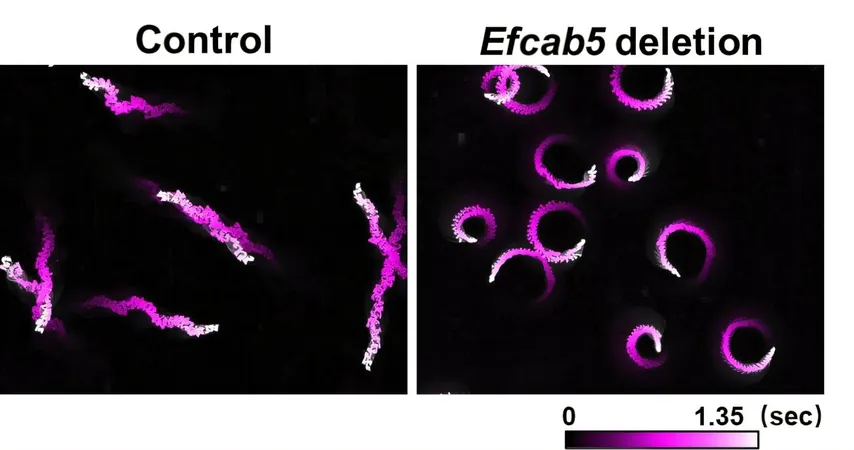
Unlocking Male Fertility: The Surprising Role of Two Key Proteins
2025-09-10
Author: Wei Ling
A Closer Look at Male Infertility
When couples face the heartbreaking challenge of infertility, pinpointing the exact cause can feel like searching for a needle in a haystack. Recent groundbreaking research shines a light on a critical factor in male fertility: specific proteins essential for proper sperm development.
Revolutionary Research from The University of Osaka
In a compelling study published in Nature Communications, scientists from The University of Osaka have discovered that certain proteins play a pivotal role in the functionality of sperm. This revelation could change how infertility is understood and treated.
The Flagella Factor: What You Need to Know
Sperm are equipped with whip-like structures called flagella that propel them forward. If these flagella aren't functioning optimally, sperm struggle to swim effectively, significantly hindering the chances of conception. Thus, disturbances in flagellar function can be a direct pathway to male infertility.
The Mystery of CFAP91 Unraveled
Lead researcher Haoting Wang explains, "The sperm flagellum is a complex structure, with radial spokes that are vital for flagellar movement. Although CFAP91, a key radial spoke protein, has been linked to male infertility, the exact mechanisms remained elusive." To uncover this mystery, researchers created mice lacking the CFAP91 protein and meticulously studied their sperm's shape and movement.
Insights from Genetic Engineering
The study's authors reintroduced CFAP91 into these mice, revealing its interactions with other proteins. By employing proximity labeling techniques, they identified additional proteins crucial for sperm health.
Results That Speak Volumes
Senior author Haruhiko Miyata states, "Our findings were striking. Mice without CFAP91 not only exhibited defective sperm flagellum development but also faced male infertility challenges." Upon reintroducing CFAP91, researchers found it partnered with known radial spoke proteins and discovered another crucial player—EFCAB5, which regulates the movement of sperm.
The Bigger Picture: Implications for Male Fertility
Wang concludes, "This research underscores how CFAP91 acts as a foundational element for constructing radial spokes. Additionally, our work shows that EFCAB5 is instrumental in controlling specialized movements of sperm." This pioneering study highlights the intricate structure of sperm and its essential role in male fertility, paving the way for potential new diagnostic approaches to tackle infertility.


 Brasil (PT)
Brasil (PT)
 Canada (EN)
Canada (EN)
 Chile (ES)
Chile (ES)
 Česko (CS)
Česko (CS)
 대한민국 (KO)
대한민국 (KO)
 España (ES)
España (ES)
 France (FR)
France (FR)
 Hong Kong (EN)
Hong Kong (EN)
 Italia (IT)
Italia (IT)
 日本 (JA)
日本 (JA)
 Magyarország (HU)
Magyarország (HU)
 Norge (NO)
Norge (NO)
 Polska (PL)
Polska (PL)
 Schweiz (DE)
Schweiz (DE)
 Singapore (EN)
Singapore (EN)
 Sverige (SV)
Sverige (SV)
 Suomi (FI)
Suomi (FI)
 Türkiye (TR)
Türkiye (TR)
 الإمارات العربية المتحدة (AR)
الإمارات العربية المتحدة (AR)